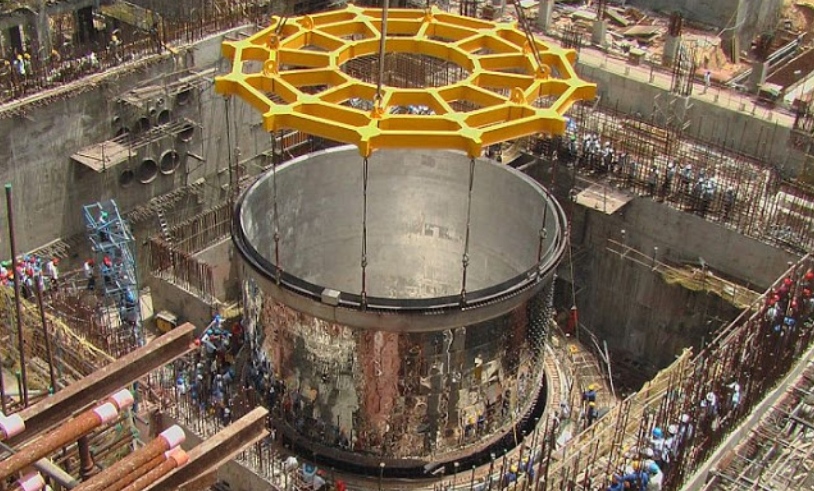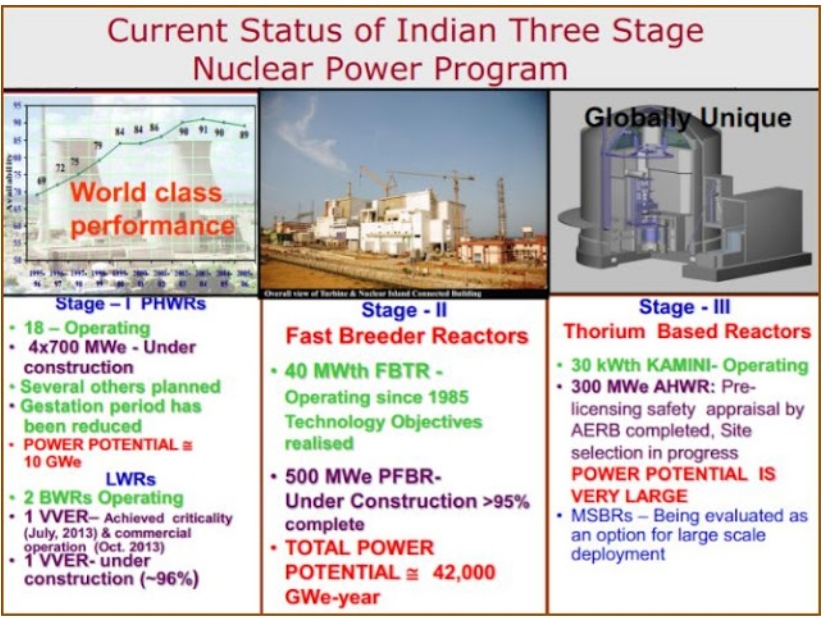India Must Accelerate The Thorium Based Fast Breeder Reactor Programme

A Sivathanu Pillai, President, Project Management Associates, former CEO & MD of BrahMoS Aerospace was speaking at the 9th edition of TANENERGY Summit 2019 organised by FICCI and the Tamil Nadu State Council on the theme: Emerging Energy Scenario in the Current Economic Trend.
The conclusion was that India should start accelerating the thorium-based nuclear reactors construction as the main source of energy.
Thorium is a weakly radioactive metallic chemical element. India’s reserves of thorium are at least three times larger than its uranium reserves. Its exploitation requires a proper sequencing of reactor-fuel cycle technologies in the overall programme.
India is already constructing a 500 MWe Prototype Fast Breeder Reactor at Madras Atomic Power Station. It is 95% complete.Once completed it will start the Second phase of our nuclear energy quest
Nearly 25 per cent of the world’s thorium ore is available in India, especially in Kerala and Tamil Nadu. Thorium has high thermal conductivity and higher melting point. For instance, 6 kg of thorium metal in a liquid-fluoride reactor has the energy equivalent of 66,000 MW hr. This is equivalent to 230 train cars (25,000 tonnes) of bituminous coal or 600 train cars (66,000 tonnes) of brown coal. With availability of abundant thorium, India can take the lead in thorium-based reactors.
According to the World Nuclear Association, out of the 63,55,000 tons of thorium resources available globally, India has 8.46 lakh tonnes, followed by Brazil with 6.32 lakh tonnes and Australia with 5.95 lakh tonnes. Other major countries that have thorium resources include the US, Egypt, Turkey, Venezuela, Canada, Russia, South Africa and China, the association’s website said.
Thorium is found in small quantities in most rocks and soils, where it is about three times more abundant than uranium. Thorium is very insoluble, which is why it is plentiful in sands but not in seawater, in contrast to uranium. Thorium is not itself fissile and so is not directly usable in a thermal neutron reactor. However, it is ‘fertile’ and upon absorbing a neutron will transmute to uranium, which is an excellent fissile fuel material, the association said.

India should also invest in developing clean coal technology; reduce oil imports and promote alternative solutions such as electric vehicles and tap ocean thermal energy and uranium, said Pilai. He also suggested generation of power through municipal solid waste. This is already being done in Salem, and can be replicated elsewhere. The pollution in Delhi, for instance, can be curbed by turning the waste into power. It is possible to generate nearly 5,000 mw of power through the 900 plants across India.
On getting energy from oceans, Pillai said uranium seawater extraction makes nuclear power completely renewable. Nearly 4 billion tonnes of uranium in seawater could fuel 1000 of 1,000 MW nuclear plants for 100,000 years, Pillai said. It gets continuously replenished and is as endless as solar and wind, he pointed out. This is a huge project and nations should join hands in this, he said.




